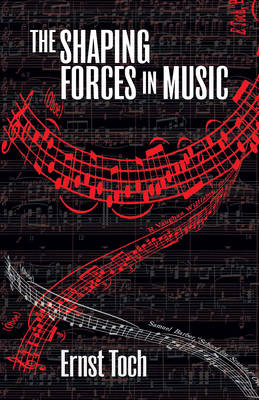
- Afhalen na 1 uur in een winkel met voorraad
- Gratis thuislevering in België vanaf € 30
- Ruim aanbod met 7 miljoen producten
- Afhalen na 1 uur in een winkel met voorraad
- Gratis thuislevering in België vanaf € 30
- Ruim aanbod met 7 miljoen producten
Omschrijving
A masterful and original classical composer as well as a renowned composer of film scores, Ernst Toch (1887-1964) made a permanent contribution to music in this important and widely praised book. Based on a series of lectures given at Harvard in 1944 and first published in 1948, this book is a brilliant examination of the materials and concepts that are the basic building blocks of music -- harmony, melody, counterpoint, and form.
An admirable reconciliation of traditional and modern (mainly 12-tone) trends in composition, this book shows all types of writing must respond to psychological wants of the listener and how similar goals may be achieved in seemingly opposed styles. Illustrating his discussion with 390 musical examples, Toch not only introduces new ideas and approaches, but examines many age-old problems with clarity and precision -- consonance and dissonance, form versus number, and more. His analysis of the expanding harmonic universe, the wave line of melody, and the formative influence of movement are particularly penetrating.
New to this edition are a biological introduction by Toch's grandson, Lawrence Weschler; a previously unpublished letter from Thomas Mann to Toch about this book (in English translation); and a complete checklist of Toch's compositions. Intended for all those who have a minimum understanding of musical notation and theory, this book will appeal to music lovers, practical musicians and amateurs, and incipient composers.
Specificaties
Betrokkenen
- Auteur(s):
- Uitgeverij:
Inhoud
- Aantal bladzijden:
- 288
- Taal:
- Engels
- Reeks:
Eigenschappen
- Productcode (EAN):
- 9780486233468
- Verschijningsdatum:
- 20/04/2011
- Uitvoering:
- Paperback
- Formaat:
- Trade paperback (VS)
- Afmetingen:
- 136 mm x 214 mm
- Gewicht:
- 322 g

Alleen bij Standaard Boekhandel
Beoordelingen
We publiceren alleen reviews die voldoen aan de voorwaarden voor reviews. Bekijk onze voorwaarden voor reviews.











